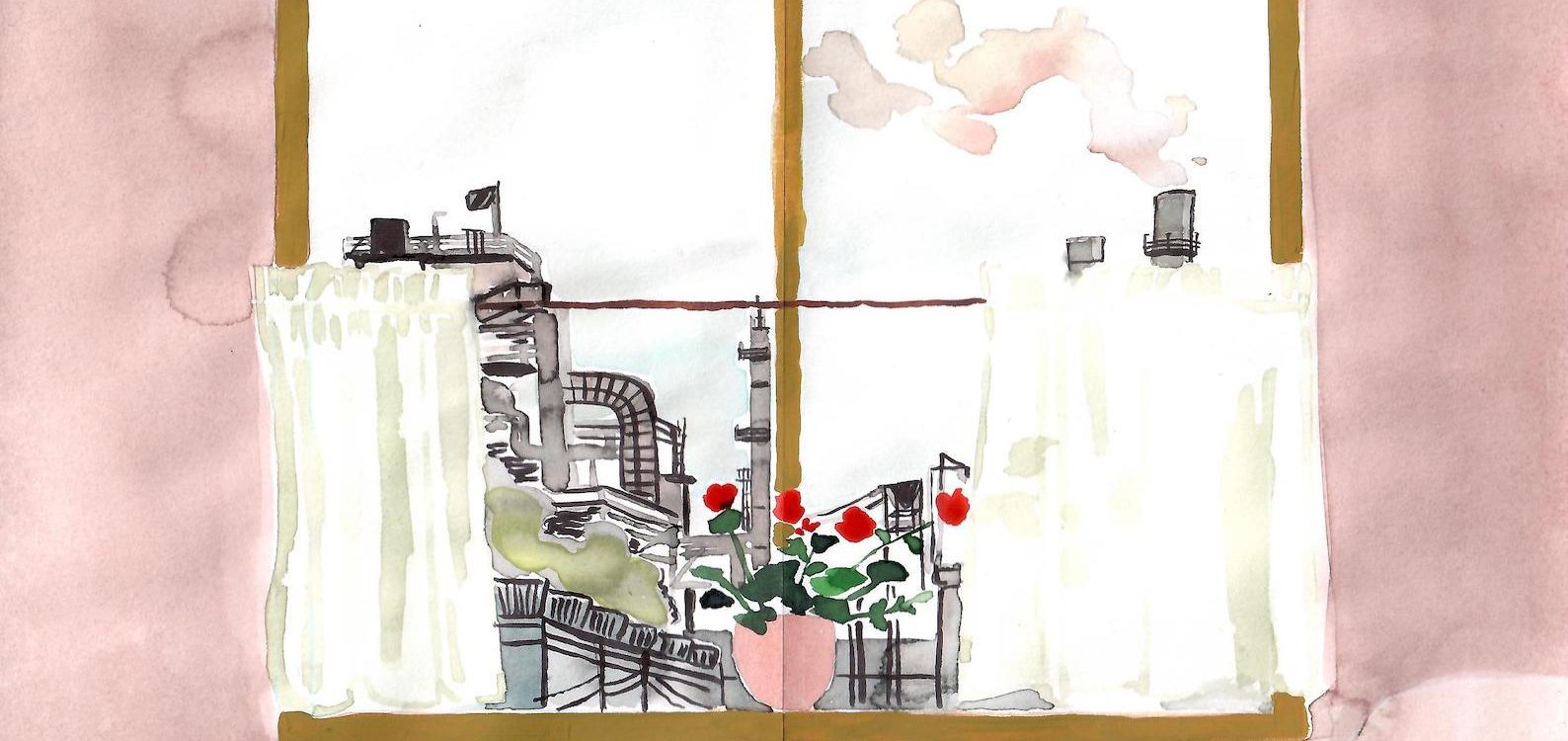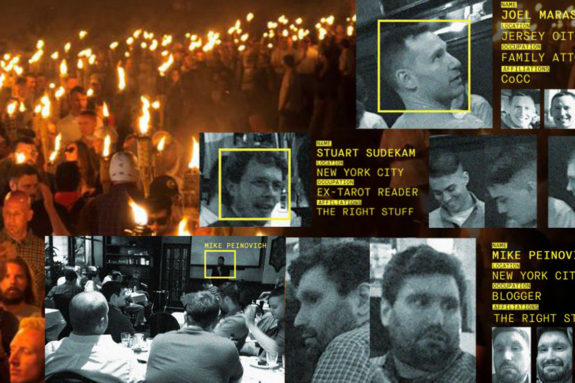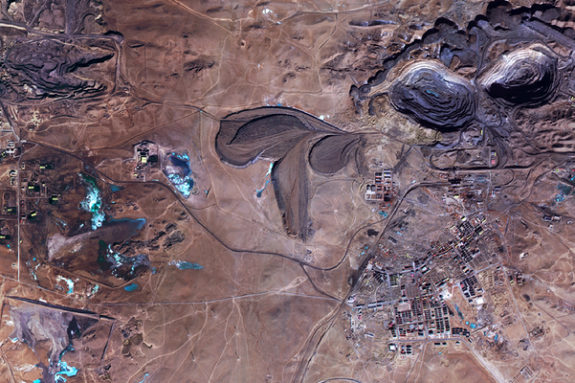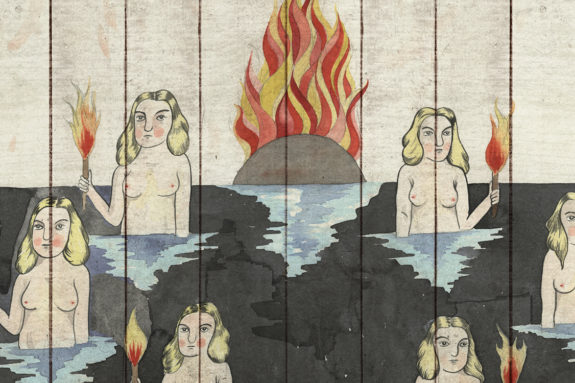On Fire: The Burning Case for a Green New Deal
by Naomi Klein
Simon & Schuster | $27 | 309 pages
After a distinguished career criticizing global capitalism, Naomi Klein pivoted in 2014 to the climate change arena, where she has mostly stayed (because where else is there for her, or anyone, to go). This Changes Everything: Capitalism vs. The Climate became the tee-up for the official Green New Deal. It said, hey, we’re in serious trouble, capitalism is responsible, capitalist technology can’t fix it, and the only solution is massive state intervention to make green policy now. The book also addressed the structural inequality inherent in capitalism and rendered increasingly deadly by climate change.
Now that an actual Green New Deal has been drafted, and we are, theoretically, just one election away from being led by those who might turn this fourteen-page list of suggestions into law, Klein is ready. Her new book, On Fire, could have been called OK, Now Let’s Really Change Everything, Seriously, Guys. Its seventeen free-standing and wide-ranging pieces — a commencement address; an account of a visit to the Vatican; a speech in Australia to accept an award that Klein felt bad about flying halfway around the world to collect in person but ultimately collected anyway — are not greatest hits. They are a sales pitch, and there are indeed some tempting wares.
I absolutely respect Klein’s serious, lifelong hatred of neoliberalism. If neoliberalism were a monster that you could kill by writing books about why it’s really bad, Naomi Klein would be standing over it holding its head in one hand and a MacBook Air in the other. In chapters like “Let Them Drown: The Violence of Othering in a Warming World” and “Capitalism vs. The Climate,” Klein explains — like Serena Williams hitting a backhand topspin lob, like Lindsey Buckingham playing solo in “The Chain,” like Samin Nosrat combining salt, fat, acid, and heat — the intricate connections between neoliberalism, global capitalism, climate change, and eco-fascism. Capitalist markets have availed themselves of large quantities of fossil fuels and cheap labor. Often, these fuels are extracted from parts of the world where marginalized people live. The fuel is then burned. Those who benefit the least from global capital’s profits suffer the most from the effects of its emissions — the Niger Delta, for example, gets flooded by rising seas, but Nigerians didn’t make a lot of money from the emissions that made those floods worse. Then wealthier nations deny shelter to and sometimes simply kill outright the refugees fleeing from the very situations they, the richer countries, created. This neoliberal/globalist/fascist death spiral is why, Klein says, the movement “can’t ask suffering people to shelve their concerns about war, poverty and systemic racism to first ‘save the world,’” and why a solution must be, in her word, “holistic.”
Klein writes, correctly, that climate misery is not universal — that capitalism has created wealth and well-being in some places by creating poverty, sickness, death, and war in others. Her analysis is comprehensive and useful, if repetitive; given that many believers in climate crisis still believe in things like meritocracy and the importance of farm-to-table dining, Klein’s analysis bears repeating. Its breadth is particularly helpful, as there are many people who think that the path out is a narrow one. Michael Mann (not the director of Heat, nor the distinguished sociologist, but the climate writer) offered a critique of On Fire: “saddling a climate movement with a laundry list of other worthy social programs risks alienating needed supporters (say, independents and moderate conservatives) who are apprehensive about a broader agenda of progressive social change. The pessimist in me also doubts that we’ll eliminate greed and intolerance within the next decade.”
A Twitter argument ensued. And while I would absolutely side with Klein over Mann, her case fills me not with hope but with a different skepticism. Klein tells us she wants to “build a transformative movement,” “break every rule in the free-market playbook,” and create “something less ornate, with room for all those who need shelter and care.” She wants to overhaul the economy because shit is fucked. I could not agree more. But then I have to ask, what is the extent of that transformation? If we’re breaking every rule in the free market playbook, can we also break every rule in the markets-at-all playbook? How much shelter and how much care and how many rules are we allowed to break to get that room you’re talking about there? Reading On Fire had me on a reaction roller-coaster: nod, nod, nod, eye-rolling smirk, nod, nod, then full-on snorting followed by taking head in hands and shouting at the dogs “How do you make such a good living talking so much shit about capitalism and not understand how it works?”
There’s a certain all-over-the-placeness that’s bound to happen in a book that spans a decade and is also trying to make several different points. But the strong voice Klein uses to describe governments and corporations falters when she starts to consider who the enemy is. Take her thesis that individuals did not cause, nor can they reverse, climate change as expressed in “You Can’t Save the World All by Yourself,” a graduation speech at Maine’s College of the Atlantic, whose tuition is 1.5 times the state’s per capita income. “The very idea that we, as atomized individuals, could play a significant part in stabilizing the climate crisis is objectively nuts,” she tells the assembled graduates.
But does Klein believe herself? “Consumerism/consumption” has six listings in her index (communism has one). It seems that Klein does think that individual behavior has climate consequences; this is sometimes registered as a sort of moral failing. In “Movements that Will Make or Break the Green New Deal,” she worries that we need to have a more “probing conversation about the limits of lifestyles that treat shopping as the main way to form identity, community and culture.” Who does she think needs to take part in that conversation? How much shopping does she think is OK — how much should people be allowed to like or enjoy an object before they begin to lean on that object to form their identity? Is looking for private property to buy also “shopping?” Is “homeowner” an identity? Is capitalism a structural force, or the outcome of freely made decisions?
It’s also bizarre that Klein imagines a world where the rest of the world builds windmills and solar panels for four hours a day and then hangs out in free parks while China is still China. If China is selling stuff for cheap, assuming that for some reason they have stopped selling fossil energy for cheap, they will nonetheless be selling windmills and solar panels for cheap. That will mean that green energy businesses in the United States will fold or else have to cut their costs so much that none of their workers will make the kind of salary that allows them to be discerning practitioners of the shopping arts. To be fair, she is also worried about rich people, who, apparently, are still going to feature in this utopia. When Klein talks about the world’s wealthiest 10–20 percent, she talks about their eating less meat, flying less, and their “less profligate energy use.” She doesn’t talk about their not existing.
Similarly, she pulls up short at every turn in discussing the fate of capitalism. It is always “deregulated capitalism” or “fossil-fueled capitalism” or “late capitalism” that has to go; maybe we need to deal not with the adjectives but the noun. In “How Capitalism Killed the Climate Fight,” Klein’s central contradiction is on full display. She argues that the time when we were supposed to wake up and smell the climate apocalypse, the go-go ’80s, was the absolute worst possible historical moment to have done so. She characterizes this period by “its ascendancy of corporate power and a new breed of politicians who know only how to dismantle and starve public institutions when they most need to be fortified and reimagined.” This is true, but it wasn’t the moment when capitalism “got really bad”; it was the period after the economy moved from goods-based to finance-based, a totally predictable step in capitalism’s trajectory. It would never have been an opportune time for governments to address the climate crisis, because governments don’t run things, markets do.
Governments can pressure capital to lower rates on utilities, or loans, or consumer prices, but they need to convince capital that these actions will be helpful to capital. There is absolutely nothing about cutting emissions that is helpful to capital — ergo, there would be absolutely no good or bad time to figure out ways to lower them. The answer is always the same: if the economy is moving, then no, fuck you, we’re not backing off from fossil fuels to slow shit down now, thank you, and no, we’re not investing in public works right now, not when there’s so much money to be made in the private sector. If the economy is sluggish, same answer, different reason: we’re not backing off from fossil fuels now, we need to create jobs, we don’t have enough as it is, and as for money for trains and light rail, ha.
Honestly, if I thought that it would work for the government to force the private sector to be a partner in the survival of the human race, I’d be all for it. I would take what I can get at this point. Klein is breathless in her yearning for deep change, for ways to somehow stop what is happening, and again, so am I. But I’m also wary of the plans of someone who thinks that deep change happens when you send neoliberalism to its room, then let it come back, chastened, as democratic eco-socialism. I am skeptical of someone who praises Sweden, Denmark, and Uruguay for their “visionary environmental policies,” when their per capita emissions data are falsely lowered by their dependence on burning wood, which, sorry, also puts CO₂ into the atmosphere. Planting trees that will be fully grown when we are all fully dead does not compensate for those emissions. I am wary of someone who says “we need economies that help us thrive, whether or not they grow,” but who also swears we can’t totally do away with capitalism — because I assume this person knows that capitalism always wants to pay less for labor, that capitalism necessarily creates an underclass of jobless people, that capitalism needs to grow at a minimum rate or face collapse, and that democratic socialism does not undo these fundamental facts.
The Pope chapter is the weirdest chapter. What happens is: Klein is invited to speak at the Vatican, because Pope Francis has written an encyclical in which he makes the very controversial statement that the Earth is actually as important as God and man and that capitalism is indeed harming both human and non-human life. Klein is excited, though skeptical. But over the course of her visit she warms to the situation, because all this hopeful stuff happens to her. She marvels at hearing the words “secular Jewish feminist” uttered from the Vatican stage. She meets priests who aren’t white and wonders if the indigenous traditions from places that were colonized and terrorized by the Catholic Church will help shift the church to a position focused less on God and man and more on plants and animals. “If one of the oldest and most tradition-bound institutions in the world can change its teachings and practices as radically, and as rapidly, as Francis is attempting,” she says, “then surely all kinds of newer and more elastic institutions can change as well. And if that happens — if transformation is as contagious as it seems to be here — well, we might just have a chance of tackling climate change.”
“How do you make such a good living talking so much shit about capitalism and not understand how it works?”
I wouldn’t characterize the atmosphere in the Catholic church as one of contagious transformation. It’s not like Pope Francis made abortion a sacrament. He didn’t give away the Catholic Church’s $8 billion endowment or its hundreds of thousands of acres of land. I mean, he just sent a letter. But even if transformation were as contagious as Klein seems to wish it were, “tackling climate change” isn’t like free love, or pickling everything, or the idea that all white people who went to college need to read Sally Rooney. It’s not a good idea that spreads like wildfire. It’s a fight between the people who make money selling energy and the people who have to use energy in order to do the labor that allows them to survive.
But for Klein, all that matters is the persuasive idea. A reader might think to themself, Klein’s a secular thinker. What is she doing with these God-fearing rape apologists? But is not the Holy See the earthly home of the ideal? Klein cares about the Pope because he is the Pope, and he is a charismatic authority figure. While Klein says that what she wants is peace, equality, and justice (and I have no reason to disbelieve that), her faith is vested in the persuasive power concentrated in the famous and prominent: climate scientists, presidents, popes. All she can imagine is a world kind of like the one that already exists, but with solar and wind, brought to us by eloquent Important People, backed by their authority, institutional affiliation, and fame, supplemented by the support of Regular People conveyed via their capacity to protest and to vote, which is the exact extent of their power to make their own history.
To supporters of the Green New Deal, the aforementioned Michael Mann just doesn’t get it. He asks for too little, believing that the problem of emissions can be treated discretely. He argues that conservatives and moderates will allow nothing more, and somehow misses the point that a whole array of structural shit, even the aspects that seem not to be directly related to emissions, are designed to be mutually reinforcing, that they will hold us in our death spiral until it is too late, if it is not already.
Let’s say it is not already too late. Klein and the Green New Deal are my Michael Mann. Just as Klein and GNDers rightly think that any solution to climate change has to take a wide view of poverty, colonization, and neoliberalism, I am equally sure we can’t just tame capitalism and avoid catastrophic warming. I think that the acceptance of this fact is 100 percent crucial to the potential success of any attempt to cool the planet. I offer as proof the nations of Sweden, Uruguay, Denmark, England, and others who, while not quite professing to be eco-socialist, nonetheless jump through every environmental regulation they can to lower on-paper emissions while keeping their real emissions high and their economies competitive. Where there is competition, profit, and an increasing struggle for productivity, there are excess emissions. Where there are nations, there are borders, and where there are borders they will be policed so that some are allowed to survive and some aren’t. If demanding the end of capitalism is idealistic, well, then, my desire to live and see others live is idealistic.





